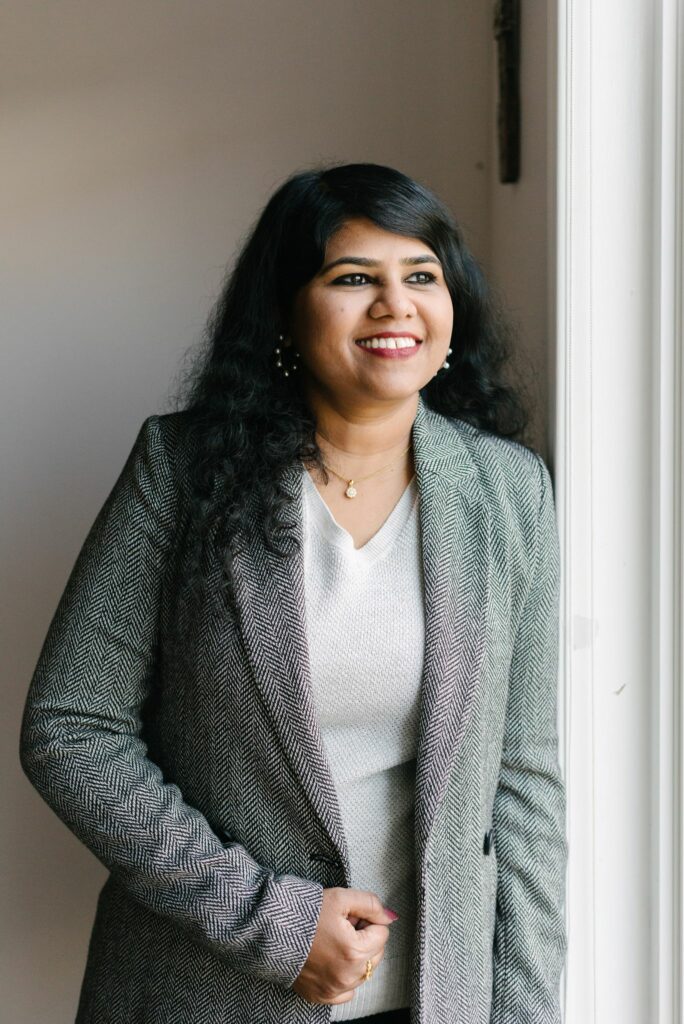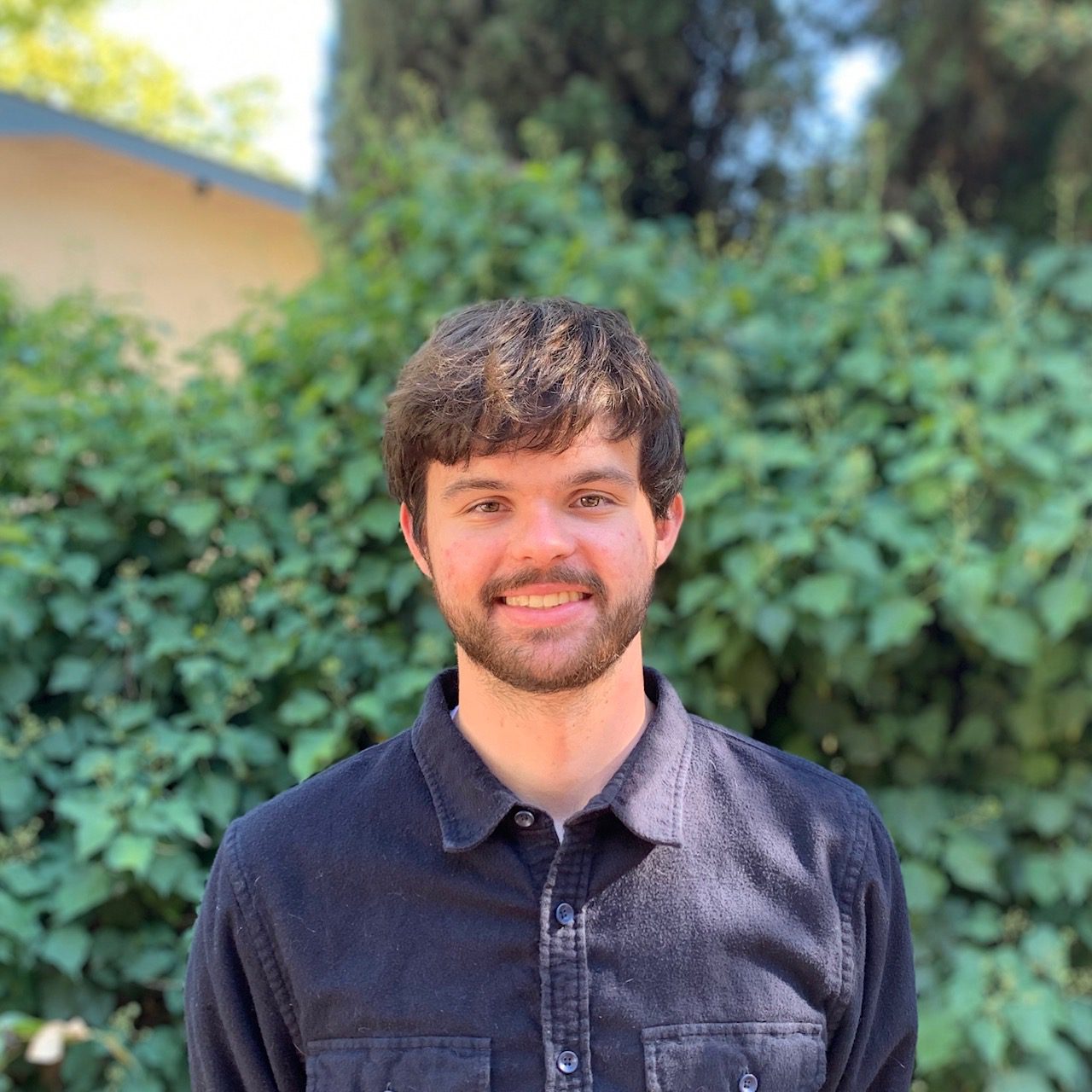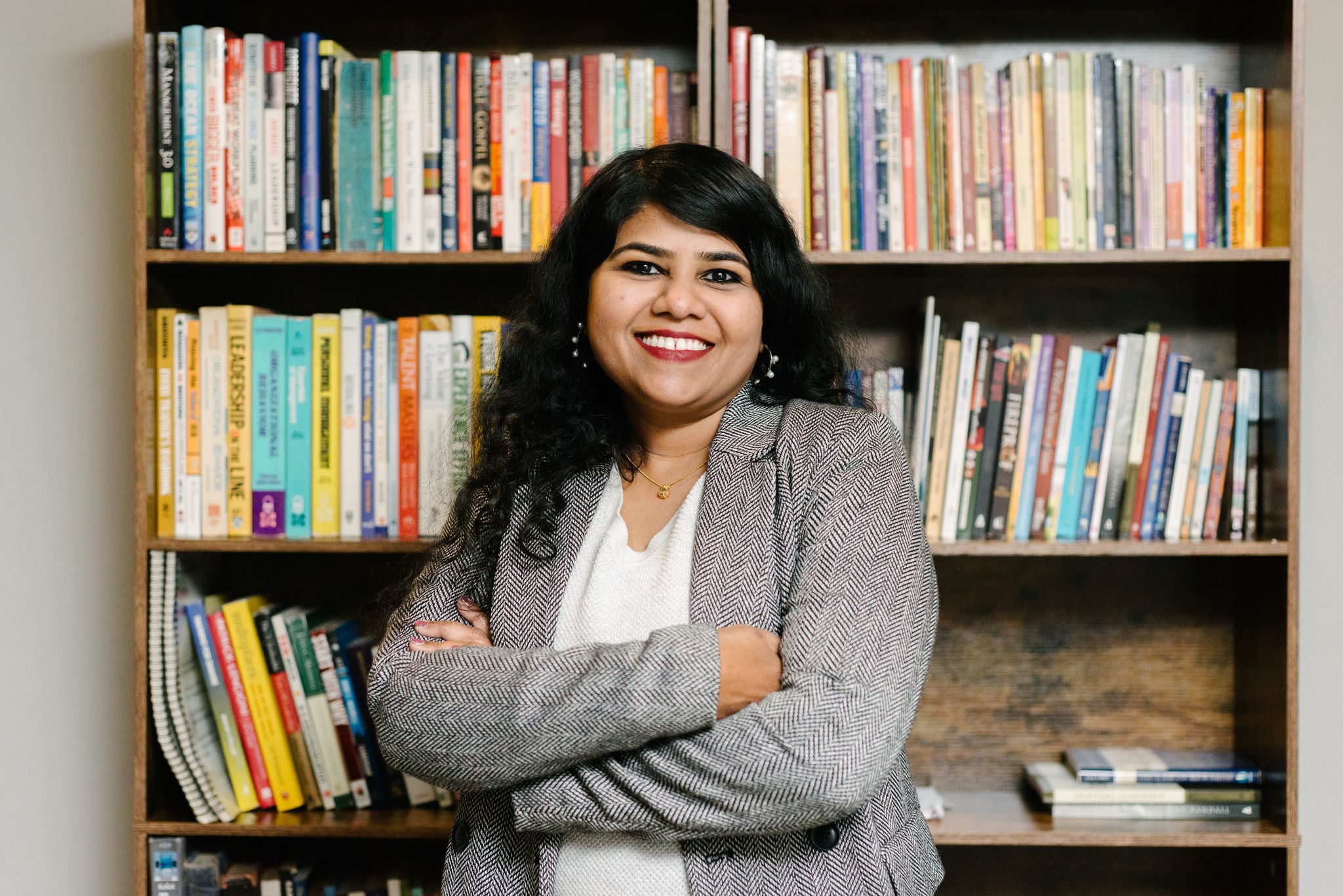As chief people officer for World Vision Canada, Christina Augustine serves those helping the world’s most vulnerable children and families facing poverty and injustice. Having worked in people and culture for the last 24 years, she excels at strategic leadership, transformation management and business outcomes from coast to coast. World Vision Canada is a Christian relief, development and advocacy organization and Augustine is also responsible for spiritual and servant leadership of her team.
With a diverse background in talent management roles from humanitarian and telecommunications work in Asia to digital engineering in North America, Augustine combines a diverse array of skills to retain and elevate her team.
“We learn a lot from her because she comes with such a wide skill set, both from a people and culture perspective and in terms of developing our entire function,” says Olaf Almeida, talent acquisition manager at World Vision Canada. “She has taken it to the next level and introduced new technology into the organization.”
Learning to pivot
Augustine’s path to talent management began with her interest in human behavior and her background in organizational psychology. “I wanted to understand behavior in the context of building organizational excellence, where human behavior plays a key component,” Augustine says. “I felt I needed to do my doctorate in applied psychology to understand that, and that was the starting point.”
After graduating from the University of Madras in Chennai, India, Augustine began her journey with the World Health Organization and at a diabetes research center in 2004, where she served as head of education, training and development. “My heart was towards building up developing countries where they need help,” she says.
Augustine then served as head of organizational development in the water industry for Ion Exchange India, where she developed the skills needed to increase productivity at a for-profit company. She got to experience a fast-paced environment organizing startup boards, planning retail stores across Asia and more. Then working in the telecommunications industry for Aircel as head of learning and development, Augustine channeled her strength into organizational development and solving productivity issues. At Aircel, she improved the capabilities of talent to be up and running in six months with incubation labs to achieve the fastest 3G rollout in the Indian telecom space.

Around the same time, Augustine gained the confidence to value her skillset in digital HR, automation, analytics and eventually AI. For the optimal employee experience, “building the right tools to support employees has given me an elevated outlook to see where I should be going,” she says. “When we look at that, we’re still in the right direction because we are at the cusp of technology right now.”
From there, Augustine stayed in IT and communications as global director of human resources at Virtusa before moving to the greater Toronto area as AVP of human resources at Ness Digital Engineering.
“I had to manage a 7,000 headcount at the time,” she says. “So that gave me an understanding of customized culture services aligned to different policies and regions.”
And with experience working across generations in the technology space, she developed an understanding of how to implement analytics, automation and gamification to best engage talent. Augustine says the main takeaways from her experience working with people and cultures worldwide are the value of agile leadership and the ability to pivot.
“When you’ve managed multiple geographies and ethnic groups, you become so versatile, because you come to the fundamentals,” she says. “It’s not a kind of a cookie cutter; it’s not something one fits for all… you try to tweak it and customize,” she says.
Working with high-turnover talent in a tech industry that has seen longevity in a role drop from 18 to 12 months, Augustine says hyper-personalization is the new way to manage talent.
“Gone are the days where people have been with the organization for 20 years,” Augustine says. “The talent scoping has to change because the pandemic has made it that way. People have different needs, different well-being and different aspirations.”
Augustine credits those throughout her career who provided a sounding board for ideas and comparisons across industries, from IT to health care. Moving into HR leadership, Augustine relied on past mentors and coaches to compare what worked for their talent management, retention strategies and more.
“It’s interesting to cross-pollinate ideas,” she says. “I keep that connection with them on a constant loop to understand what’s working, what’s not working and where we should pivot quickly.”
Going agile
Given all she learned in the for-profit space, Augustine felt more than prepared to maximize her impact on the people and culture at World Vision Canada as she joined the organization in October 2021. She was eager to have a more significant impact on the world.
“My heart was towards the humanitarian sector because that’s the calling I had,” she says. “But then I felt I needed to learn a lot of tools, which is the reason I went to the profit space to understand tremendous, steep learning.”
The opportunity to work at World Vision came from a friend who encouraged Augustine to consider, believe in herself and ultimately work to help the most vulnerable. Aligning with her calling to humanitarianism, spiritual leadership and a proven agile HR technology record at companies like Ness and Kids Help Phone, Augustine made it through an extensive hiring process to become WVC’s new CPO.
In her role at World Vision Canada, Augustine leads a growing people department of 12 talent professionals. Her team includes a talent acquisition team, talent transformation team, talent partner and service experience team and a retention team. Aligned with World Vision’s commitment to stewardship and spiritual leadership, Augustine supports her team with a visionary lens to ensure tangible business outcomes as they continue to grow.
After receiving a limited, “barebones” people and culture department, Augustine has wholly revamped it in the year since she arrived.
“She completely turned [our P&C function] around, 360 degrees, from hardly having any people and culture function,” says Almeida. “Which is an achievement in itself with how long she’s been here.”
Growing through both external hiring and internal promotion, Augustine has been keen to identify and retain top talent on her team.
“She has been instrumental in my growth within this organization, just in terms of recognizing my expertise,” says Almeida. “She knew my capabilities and had the trust to give this [manager position] to someone who only had a year of experience at World Vision. All the credit goes to her trust in my ability to build a team and function.”
In the last six months alone, Augustine’s talent acquisition team has hired and onboarded more than 148 new hires.
“I spend a lot of time telling them the big picture and also giving them that kind of roadmap and, also asking them for ideation,” Augustine says. “That gives them a lot of buy-in and sponsorship, then it becomes their passion rather than the Chris-vision.”
By empowering her team and consistently checking in on needed resources, tools and even potential roadblocks, she keeps her team prepared and agile for anything. One of the core values at WVC is responsiveness and Augustine knows its importance in increasing team engagement and trust.
When it comes to performance management, Augustine believes in constant improvement and reengineering of goals and resources. Understanding when to step in to help, and when to not, is a sense she’s developed throughout her career.

“If you just need a little motivation and encouragement, a little soft gas is enough,” Augustine says. “But sometimes they need more because they will say they are so discouraged by many roadblocks. That’s when you need more gas to help support them.”
At the beginning of this year, Augustine’s team rolled out Agile 101, which provides immersive training during onboarding, agile tools and role-based training. With the goal of becoming a 100 percent agile-trained organization by the end of 2025, Augustine also helped launch an Invest and Equip program, focusing on capability building and measurement.
“Our people will have the clarity to understand… and people become more self-empowered on their learning capability, rather than imposed,” she says. “That way, they see the strategic alignment as an organization.”
Data-driven success
Augustine’s working philosophy is always a people-centered approach, reinforced by data. In terms of defining success, her approach is much the same.
“Analytics is very close to my heart,” Augustine says. “Of course, stories are important, but quantifiable variables are very, very important.” Every week, she uses a proactive employee delight index to gauge engagement and tell whether talent health is “good, average or sad.”
By constantly checking engagement levels, net promoter scores, and talent acquisition time-to-fill, Augustine ensures positive business outcomes and well-being for her people through data-driven HR.
“My doctoral research always helps me look at what can be made measurable and what cannot,” she says. “That kind of quantifiable lens is important. At the end of the day, people and culture are there to support business. If not, your business is not doing well.”
Moving forward, Augustine aims to deepen the experience of initiatives launched in her first year. World Vision’s “Living Orange” onboarding program is set to increase performance as the company grows, she plans to develop OKRs to align with performance and dive into their “You Matter” performance and development program aiming to grow 80 percent of leaders from within.
Augustine is excited about the ideations that have come out of the last three years around technology, hybrid work and a new perspective on work. With the growing benefits of technologies like artificial intelligence, she hopes it will give leaders more time to focus on their teams.
“We can spend our time as leaders in the strategic part, the empathy part or the more important layer of well-being for the staff so that we can create true transformation,” she says.
Maintaining an experimental lens
Augustine believes the industry and its leaders often lack an experimental view of culture. Creating a space to experiment with different groups of talent is vital for success, she says.
“It’s more important to get that experimental view of human behavior, because we have a zillion behaviors that can be leveraged to the maximum for organizational culture,” she says.
For those beginning their journey in the industry, Augustine says it’s paramount to have an open lens, jump into a learner’s mindset and absorb as much as possible – unlearning is the key. Once that mindset is established, “you go up and up, preparing your people for excellence, high performance and retention,” she says. “You’re in the right place.”












